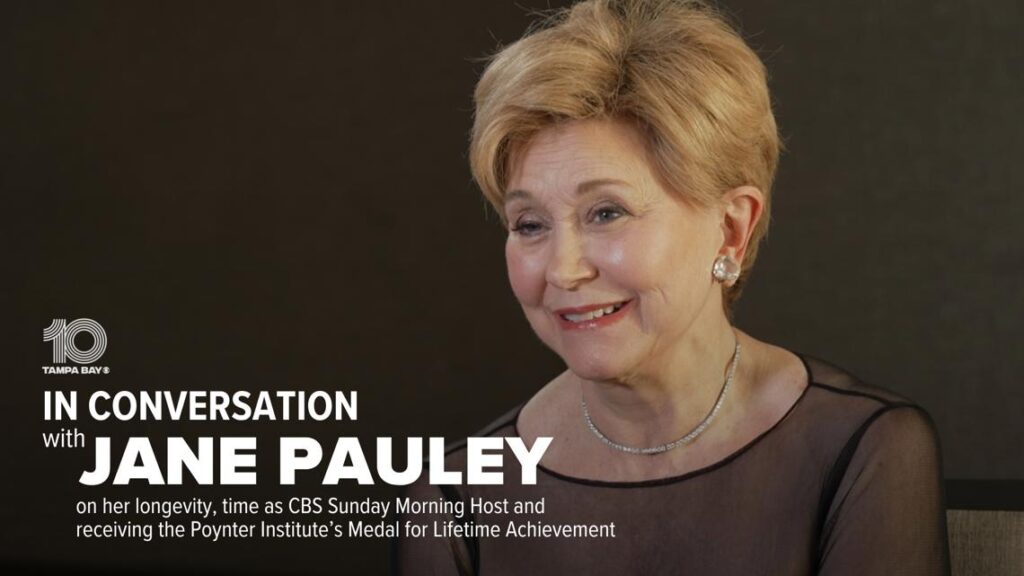Pauley was honored on Saturday in Tampa with the Poynter Medal for Lifetime Achievement in Journalism.
TAMPA, Fla. — The iconic trumpets that sound to open CBS Sunday Morning are not just a call to take in great journalism. They’re an invitation to spend time with an exemplary journalist. From the TODAY Show to Dateline and now to CBS, Jane Pauley has been gracing television screens across the nation for more than 50 years.
This weekend, she made her way to the Tampa Bay area to accept the Poynter Medal for Lifetime Achievement in Journalism. She sat down with 10 Tampa Bay News anchor and investigative reporter, Emerald Morrow, to talk about her career longevity, impact and legacy.
Note: This conversation has been edited for length. View the full interview at the end of this article.
Emerald Morrow (EM): We’re so excited to have you here with us tonight. This is such a huge achievement. Talk to us about what it means to you to be accepting this award tonight, especially at this point in your career.
Jane Pauley (JP): I was spending several days in my basement looking at what we call ‘the archives,’ most of which my husband saved of clippings and letters and portraits of hairdos throughout the decades. And honestly, in combination with coming here, I have been evaluating a career of many decades and going back in time and looking at ‘her,’ which I think of as the third person because she had no idea I’d be here today. And frankly, having some respect, a career that has been remarkable and has been good fortune, good luck. And at this age, I’m more likely than a younger me was to say, ‘way to go.’

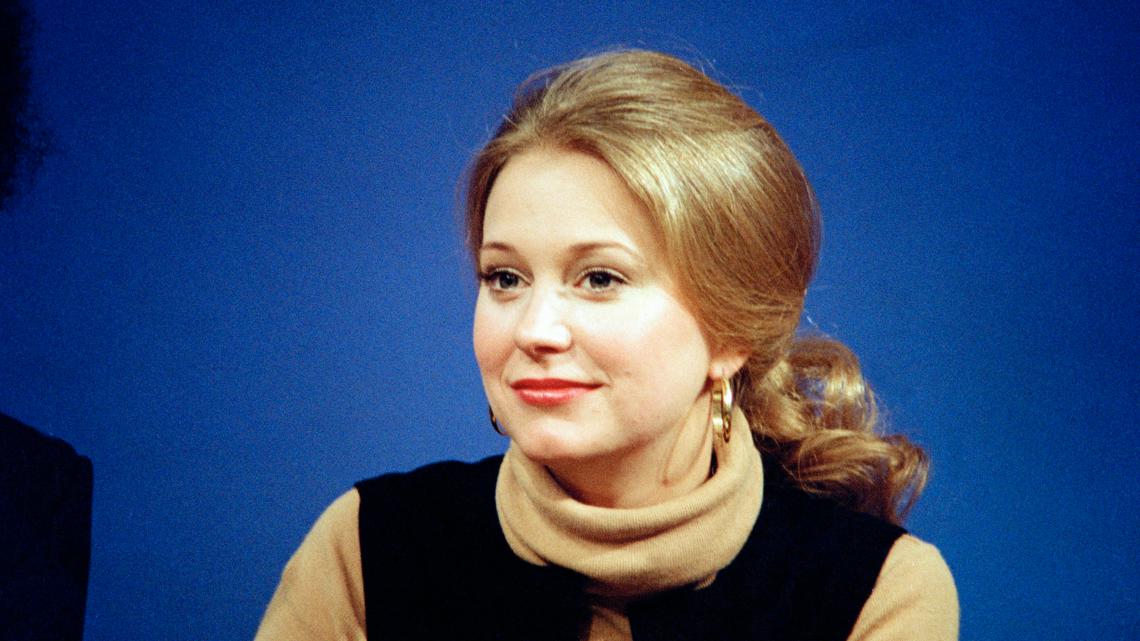

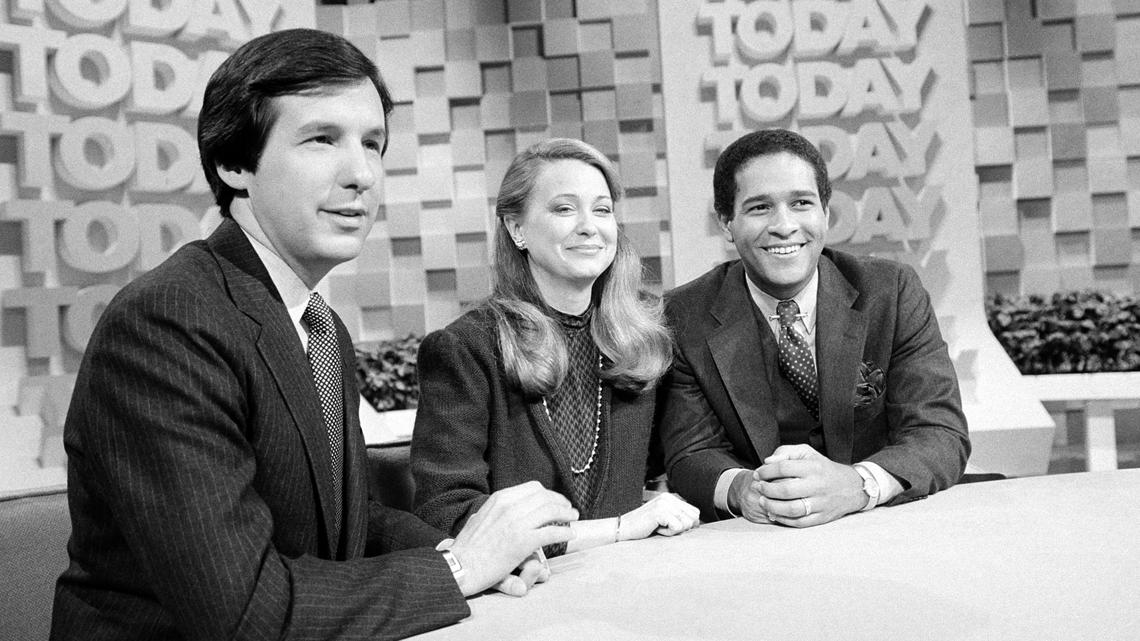
EM: You talk about good luck, but you don’t get to where you are and stay there by just having good luck. It takes a whole lot within. Talk to me about what is within you that keeps you going and driving yourself in this field.
JP: I don’t know because I don’t think of myself as a driven person. But you make a good point. For many years in the beginning of my career, when I was 25 years old and suddenly sitting in Barbara Walters’ chair – now, Barbara Walters at that time was the pre-eminent woman in broadcast journalism and was for every day in the rest of her life. So, why was I there? It was a question that really dogged me for many years. I don’t know when I stopped, except looking back now.
You do have to explain the durability that it’s been 50 years in network and a few beyond that, and it has been remarkable. And I guess I have been a person who perseveres a lot more than I noticed. I’m from Indiana, you know, and that requires some humility. And I still have that, you know, once a Hoosier, always. And I think in this part of Florida, there are a lot of Midwesterners who know exactly what I mean.
But I’ve kind of grown into… seeing qualities that a young person can’t appreciate until much later in life, and I really am not just speaking about myself, but about you and however your career takes you. You will be looking back and admiring the young woman who accomplished all of that.
Sometimes there were bumps and unexpected trips, and then, 10 years ago, to turn up on CBS Sunday Morning was – well, I wrote a memoir, and the subtitle was A Life Out of the Blue, and nothing came more out of the blue, than my 10 years at Sunday Morning.

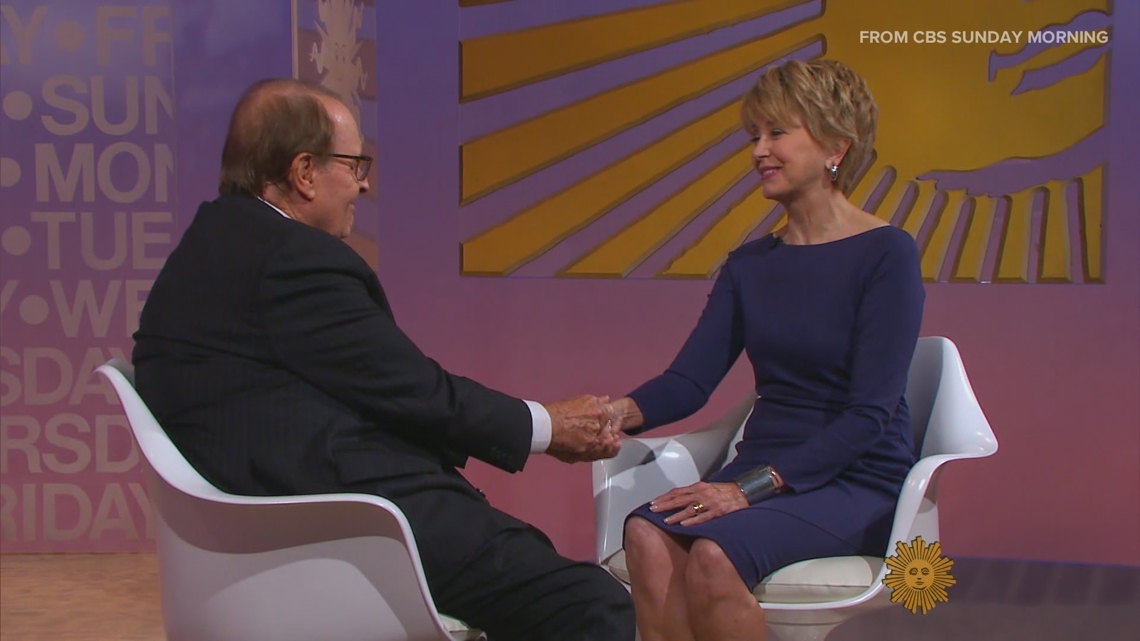
EM: Well, that is such a respected show and the format of that show is so much different than what a lot of people, young people especially, consume these [days] — Very bite-sized little bits on Instagram and social media and whatnot. What would you say or what would you attribute the longevity and success of a show like CBS Mornings to in this day and age?
JP: It’s a quiet time and an opportunity to sit down and consume a story that has a beginning, middle, and sometimes a surprising end.
The eclectic nature of the show, it is the vision of our executive producer, Rand Morrison, who really does put it together very much like you might put a painting together. He needs a little of this and a little of that, and has an hour-and-a-half program that is absolutely surprising. The beginning and the middle and the end are very different.
It all flows together. But there isn’t another program on television that can be created like that. It looks easy… It’s not easy. But I can’t think of another show, another time period where you could create that kind of quality program that makes you want to sit down and actually finish a cup of coffee. I would highly recommend it, and young people who have a chance to look at it, can appreciate an actual story.
EM: Because storytelling is something that unites us.
JP: Well, that’s what makes a human, human — is story. I mean, the storytellers from around the campfire and the way, way, way, way back, the storyteller was always very important. And that tradition, I think, is built into our DNA. We have a gift for telling story and sharing story and celebrating the storyteller. That’s what our show really is all about. It’s a collection of storytellers, all different.
When I first started the show, I remember my first story, and I wondered, ‘how do Sunday morning stories end?’ So, I found out transcripts and other examples and looked through them, and it turns out that every Sunday morning story ends however it wants to. Or maybe it comes to a… pithy statement, a conclusion, or sometimes they just stop and then you see the sun.
I’m only the third host of Sunday Morning… but what a great program and a successful program. I arrived in a program that had been number one forever and still is and it deserves it.
RELATED | Jane Pauley to join CBS News
EM: Ask as you reflect on your career and accept this award tonight, talk to me about what you hope your legacy will be.
JP: Don’t think of myself as having a legacy… but after, you know, many decades and in getting an award, you do feel compelled to find something. And in the 1980s, which is a very long time ago, but it was a very meaningful time, particularly for young women.
My competition on ABC, Joan Lunden, got pregnant. First of her three children, and then I followed with twins. And then throughout the 80s, one or the other of us was having a baby. And after we had the babies, we came back to work.
That really launched an awful lot of young women into careers… whether it’s, you know, teachers or lawyers, these young women at five days a week just having families and then coming back to work was novel and important and noticed and not to be taken for granted.
So, as much as the journalism matters and the interviews I’ve been able to do and stories I’ve told, the opportunity to be on the cutting edge… starting the Today Show at age 25… the paradigms were shifting and youth mattered.
And then Charlie Osgood was 83 when he passed the baton to me when I was 65. Which number is more relevant — twenty-five, sixty-five — to start something new? And I’m still there, and the world has given opportunities that it didn’t before. So, I seem to kind of consistently ride the crest of new, of change. I’ve been blessed with that opportunity, and I would like to cite the great stories that I have told, and there have been some very good ones — but I think my legacy is more, the cultural and social opportunities I’ve had to just lead without intending to.

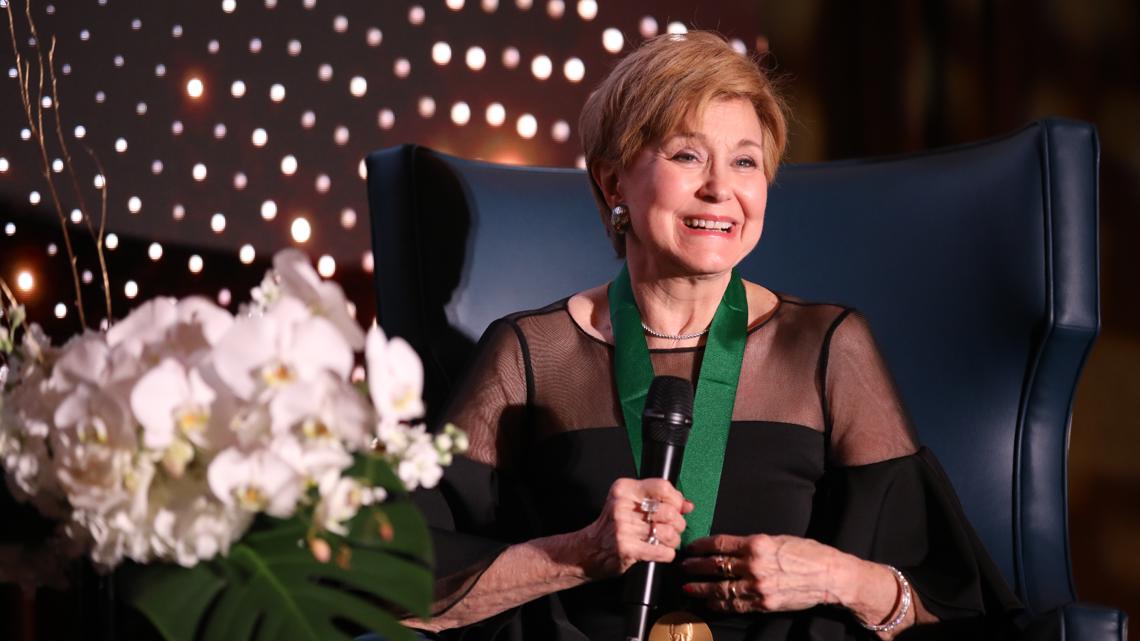
Emerald Morrow is an investigative reporter with 10 Tampa Bay News. Like her on Facebook and follow her on X. You can also email her at emorrow@10tampabay.com. You can catch up on CBS News’ Sunday Morning here.

